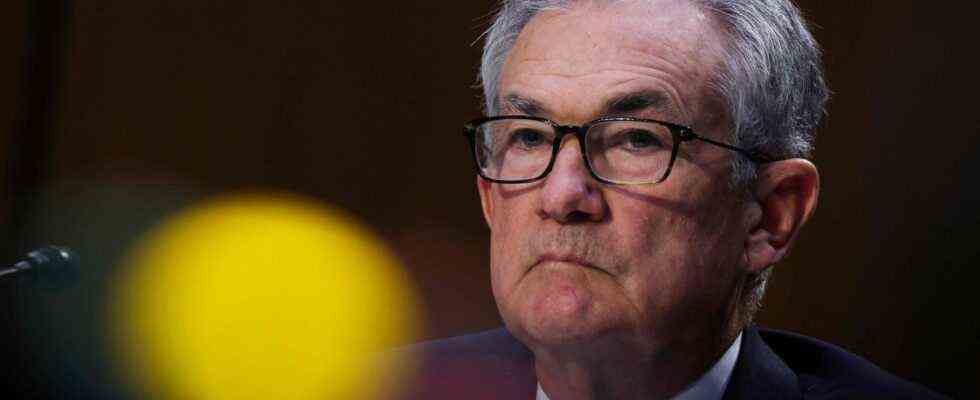Market report
Status: 11.10.2021 7:54 a.m.
Evergrande, delivery bottlenecks, sluggish economic recovery, inflation, interest rates and monetary policy – the problem children of the new stock market week look terribly familiar to market observers.
The DAX should start the new week with slight gains. Banks and brokers currently rate Germany’s leading index at 15,220 points, 0.1 percent above its closing price on Friday (15,206 points).
Last week, the DAX fell almost to the May low of 14,816 points, but then settled just above it, the weekly low was at 14,819 points. A stormy countermovement followed, which drove the DAX back above the important 200-day line (currently at 15,050 points).
This line is an important indicator for the long-term course of the 40 German standard values: If the DAX is quoted above it, price gains are likely. If the DAX is listed below this, there is a risk of price losses.
But even if the DAX bulls were able to avert greater technical damage to the German benchmark index with a weekly closing price above the 200-day line: From a fundamental perspective, the further recovery potential seems limited.
The ailing real estate company China Evergrande is likely to miss another payment deadline for $ 148 million in interest on its offshore bonds today. So far, the second largest Chinese real estate developer has already allowed two such deadlines to pass without comment.
Interest payments totaling $ 131 million were due on September 23 and 29. Evergrande now has a 30-day period within which it can still meet its obligations, otherwise the group is officially insolvent.
Focus on delivery bottlenecks and the US inflation rate
But not only China Evergrande has what it takes to spoil the new stock market week for investors. The ongoing supply bottlenecks in industry, which should give the German economy a mixed autumn / winter, should also remain a topic of discussion.
On Wednesday, the US inflation data for September are also on the stock market agenda. According to Helaba, the price increase is likely to remain above the 5 percent mark. The publication is an important note before the next interest rate decision by the US Federal Reserve at the beginning of November.
Then it will show whether the US central bankers will continue to adhere to their narrative of an only temporarily high inflation rate and how much they will use the monetary policy levers.
“Bond yields continue to rise, inflation expectations rise and a tightening of monetary policy is becoming more and more likely,” the ANZ analysts write in a press release.
Last but not least, the rapidly rising energy prices are contributing to the rising inflation expectations. Oil prices continue their latest rally at the beginning of the week. The price of a barrel of North Sea Brent rose 1.6 percent to $ 83.71.
Meanwhile, positive indications for the DAX come from the Asian stock exchanges at the beginning of the week. The falling yen-dollar rate is boosting Japanese stocks. Shortly before close of trading in Tokyo, the Nikkei index, which comprises 225 stocks, is 1.5 percent higher. The Shanghai stock exchange is up 0.5 percent.
Wall Street, on the other hand, has rather mixed specifications. The Dow Jones Industrial stagnated at 34,746 points on Friday. The tech-heavy Nasdaq 100 was down 0.5 percent to 14,821 points, and the broad S&P 500 was down 0.2 percent to 4,391 points.
The much-anticipated job data from the United States did not give Wall Street any directional momentum on Friday. “This labor market report will give central bankers a headache,” commented portfolio manager Thomas Altmann from asset manager QC Partners.
In September, only 194,000 new jobs had been created outside of agriculture in the United States, while experts had reckoned it was half a million. At the same time, the unemployment rate fell more than expected to 4.8 percent – and wages rose surprisingly significantly.
The dollar is on the decline at the start of the week. This also strengthens the back of the European common currency. The euro rose 1.0 percent in the morning to 1.1573 dollars and was able to move up slightly from its 15-month low marked in the previous week.
The falling dollar exchange rate also benefits the gold price, as it strengthens the demand for the yellow precious metal in the non-dollar area. An ounce of gold is trading at $ 1,757 that morning. That is 0.2 percent more than on Friday.
After the DAX rise, the fragrance and flavor manufacturer Symrise wants to press ahead with its expansion course and is focusing on acquisitions in addition to organic growth. “Acquisitions remain an important strategic lever for expanding our portfolio and opening up growth areas,” said Symrise CEO Heinz-Jürgen Bertram of the business newspaper “Euro am Sonntag”.
The CEO of the energy company RWE, Markus Krebber, reckons with end consumers that “electricity and gas will become more expensive in the next few years”. How strong the increase will be cannot be said today, said Krebber of the “Rheinische Post”. “Nobody expected the current explosion in stock market prices,” he added.
Tesla boss Elon Musk wants to produce the first electric cars for Europe in Germany by December at the latest. The company boss announced this on Saturday at an open day at his first European plant in Grünheide near Berlin. After that, it will take until the end of next year for production to ramp up. By then, a battery factory that is still under construction should be in operation next to the car factory, Musk said.

